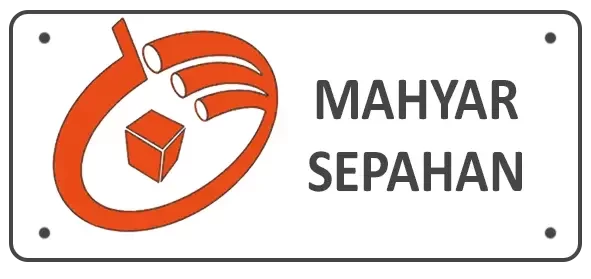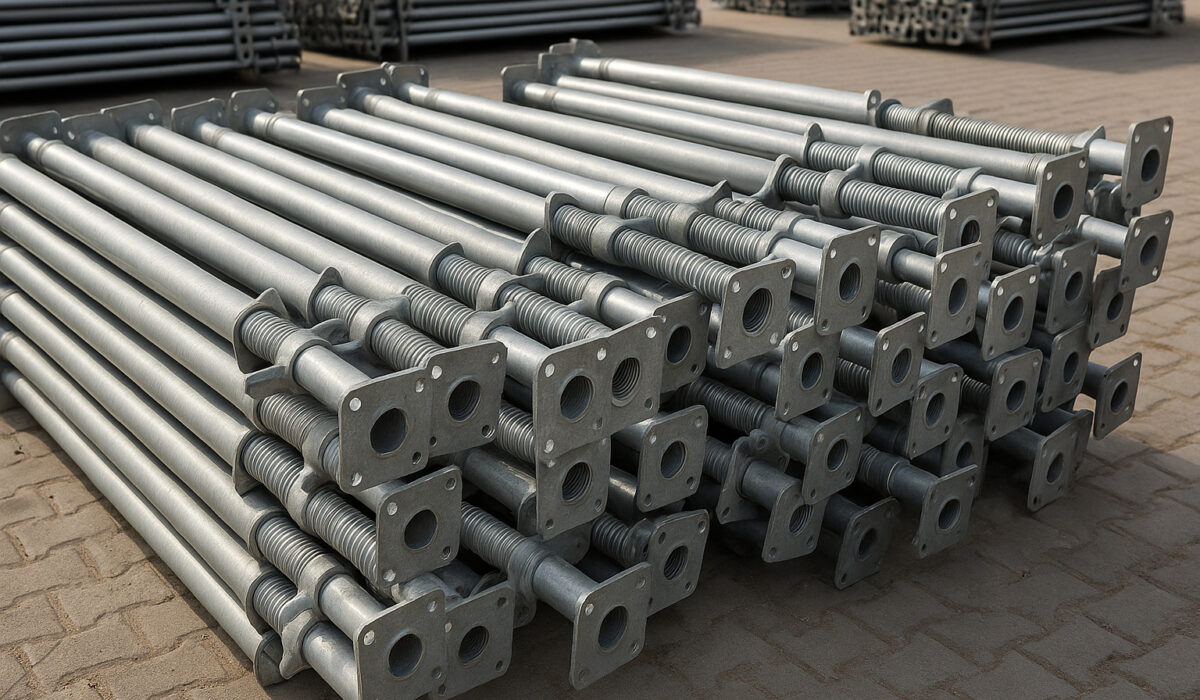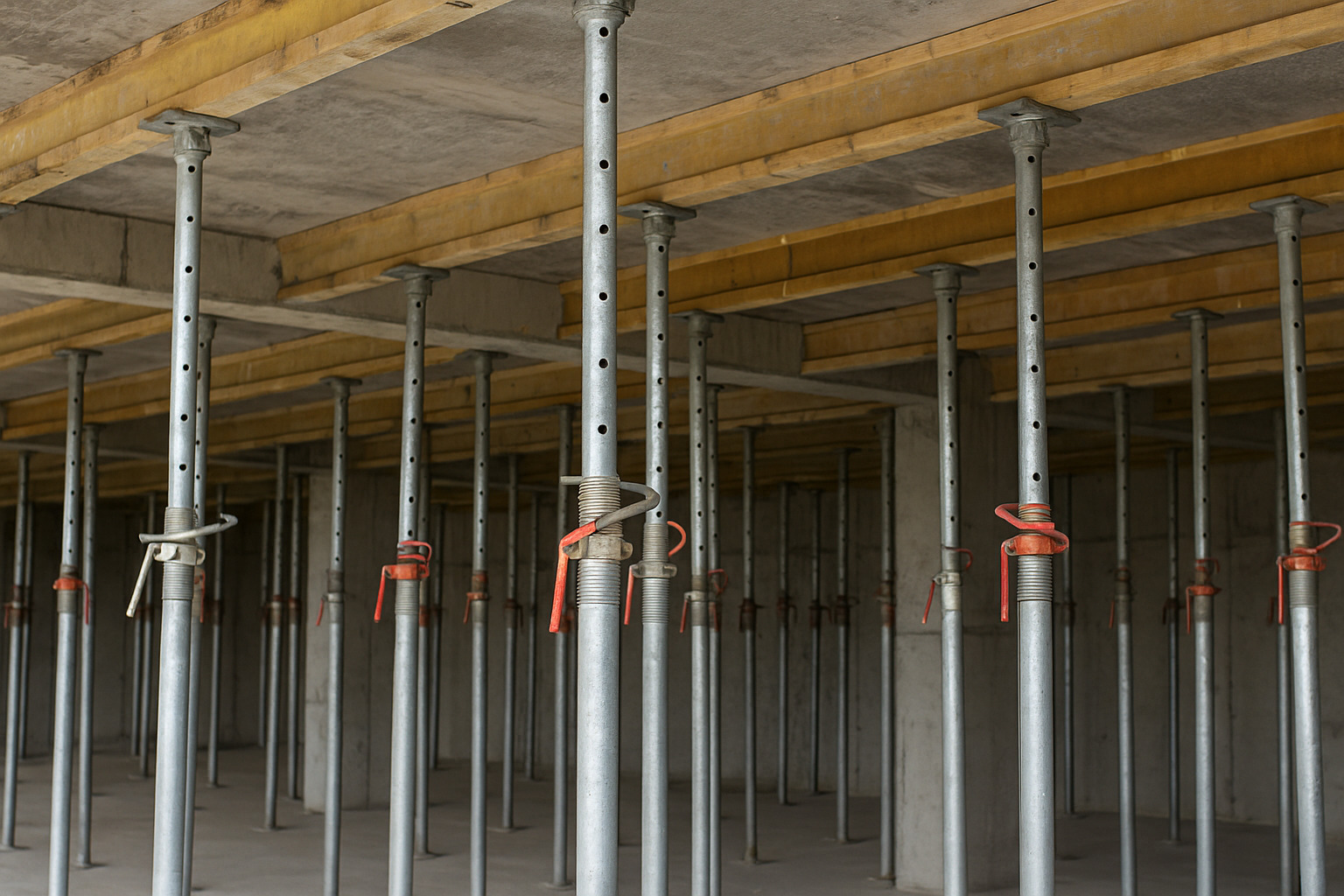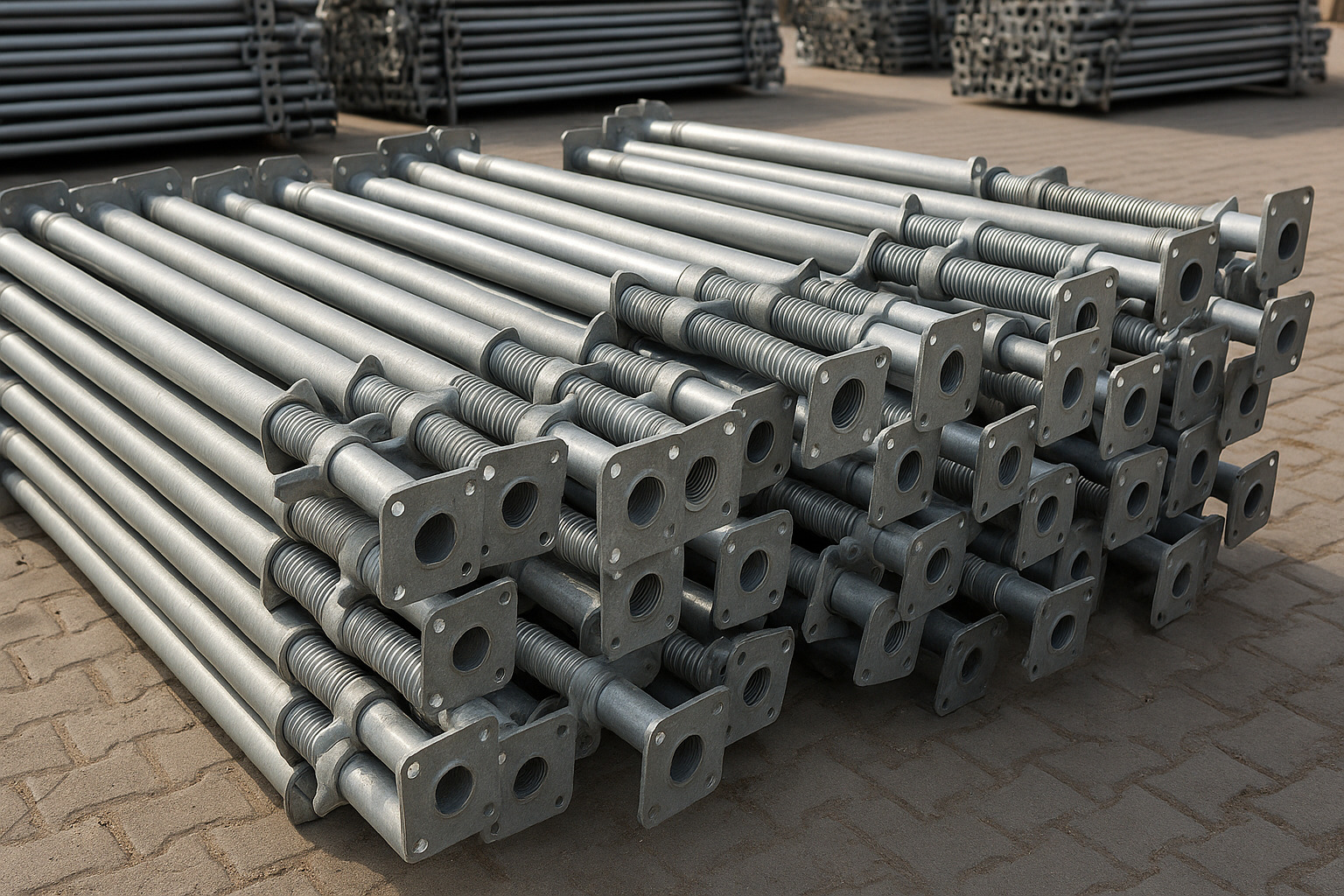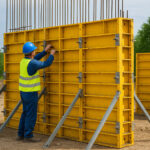Ceiling Jack is a metallic, adjustable tool used to support ceiling formwork, concrete slabs, or beams during concrete pouring in reinforced concrete structures. This tool is also known as a ceiling plumb jack, metal supporting post, or formwork steel prop, and it is one of the essential safety elements in construction projects.
Components of a Standard Ceiling Jack
Thread (Adjusting Screw): For precise height adjustment
Lock Pin (Wedge): To secure the adjusted length
Inner and Outer Tubes: Cylindrical telescopic system
Base Plate: To evenly distribute pressure to the ground
U-Head or Flat Head: To hold beam or ceiling formwork
Technical Specifications of a Standard Ceiling Jack
Closed Length (Min): 1.8 m to 2 m
Extended Length (Max): 3.2 m to 4 m
Load Capacity: 1.5 to 2 tons (concentrated load)
Tube Material: ST37 or ST52 steel
Surface Finish: Hot-dip galvanized or powder-coated
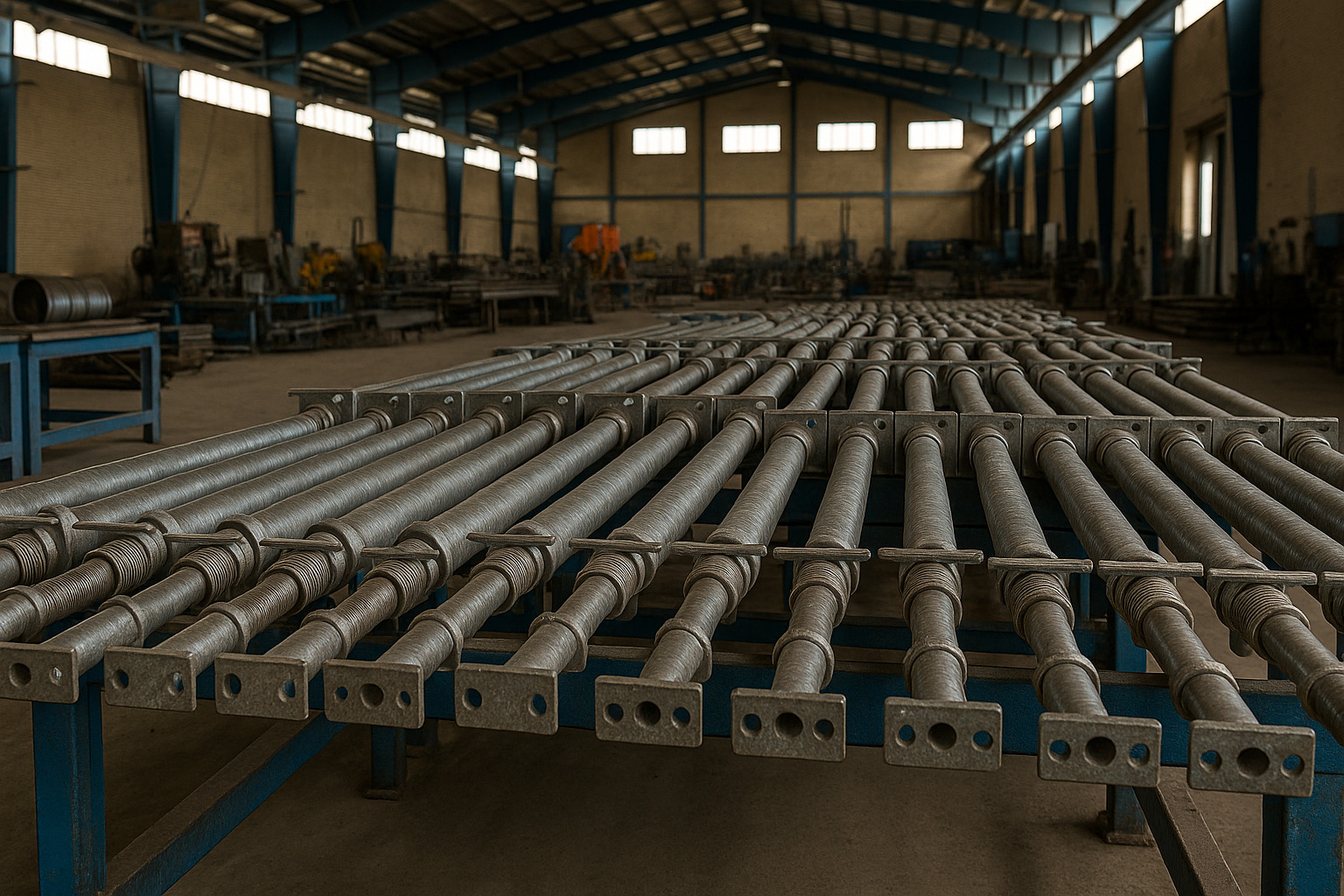
Types of Ceiling Jacks in the Iranian Market
Content list
Cross-Head Ceiling Jack
Equipped with a cross-shaped head for supporting beam and slab formwork.Simple Ceiling Jack (U-Head)
The most common type for flat concrete slabs.Heavy-Duty Ceiling Jack
With thicker and larger diameter tubes for higher load-bearing capacity in industrial structures.Quick-Release Ceiling Jack
Equipped with an adjustable pin for installation without screw threading.
Advantages of Using Ceiling Jacks in Concrete Formwork
Precise Height Adjustment
Thread and pin mechanisms allow millimeter-level adjustments, essential for accurate ceiling, beam, and slab formwork.Higher Safety Compared to Traditional Scaffolding
Engineered structure and vertical load distribution reduce the risk of overturning or deformation.Fast Installation and Dismantling
Each jack can be installed or adjusted within seconds, much faster than multi-piece scaffolds.Reusable for Multiple Projects
With proper maintenance, each jack can be reused in over 50 projects, unlike wooden scaffolds that degrade quickly.Easy Transportation and Storage
Telescopic design reduces space requirements for transport and allows organized storage.
Comparison: Ceiling Jack vs. Metal and Wooden Scaffolding
| Feature | Metal Ceiling Jack | Metal Scaffolding | Wooden Scaffolding |
|---|---|---|---|
| Installation Speed | Very High | Medium | Low |
| Height Adjustment | High (Threaded) | Low | Very Low |
| Safety | Very High | Medium | Weak |
| Lifespan | 5–10 years | 2–5 years | Less than 1 year |
| Weight | Light & Telescopic | Heavy, multi-part | Light but weak |
| Final Project Cost | Low (for repeated use) | High | High (quick decay) |
Factors Affecting the Price of Ceiling Jacks
The price of a ceiling jack is influenced by the following factors:
Thickness of the inner and outer tubes (3–4 mm)
Type of thread and welding quality
Surface coating (electrostatic paint or galvanization)
Adjustable length (2–4 meters)
Required load capacity
Brand and manufacturing company
Note: Jacks with heavy tubes and strong threads are a better choice for industrial projects or large-volume slabs.
Special Services of Mahyar Sepahan in Ceiling Jacks
Production of jacks from 2 to 4 meters using heavy ST37 steel
Hot-dip galvanizing or powder coating with corrosion guarantee
Custom production for heavy structures or arched ceilings
Resistance test reports and technical manuals for EPC projects
Fast delivery across Iran with official shipping documents
Proper Installation and Use of Ceiling Jacks
Correct use of ceiling jacks not only ensures project safety but also increases equipment durability and reduces costs. The following are the proper steps:
Preparation of the Installation Site
The ground surface must be completely level and firm. Wooden or metal pads should be used on soft ground.Initial Height Adjustment
Extend the jack to about 80% of the desired height and secure it with the lock pin.Leveling the Jack Head
Use a manual or laser level to ensure the jack head is perfectly aligned with the ceiling formwork.Final Lock with the Threaded Screw
Tighten the threaded screw until the jack is firmly locked in its final position.
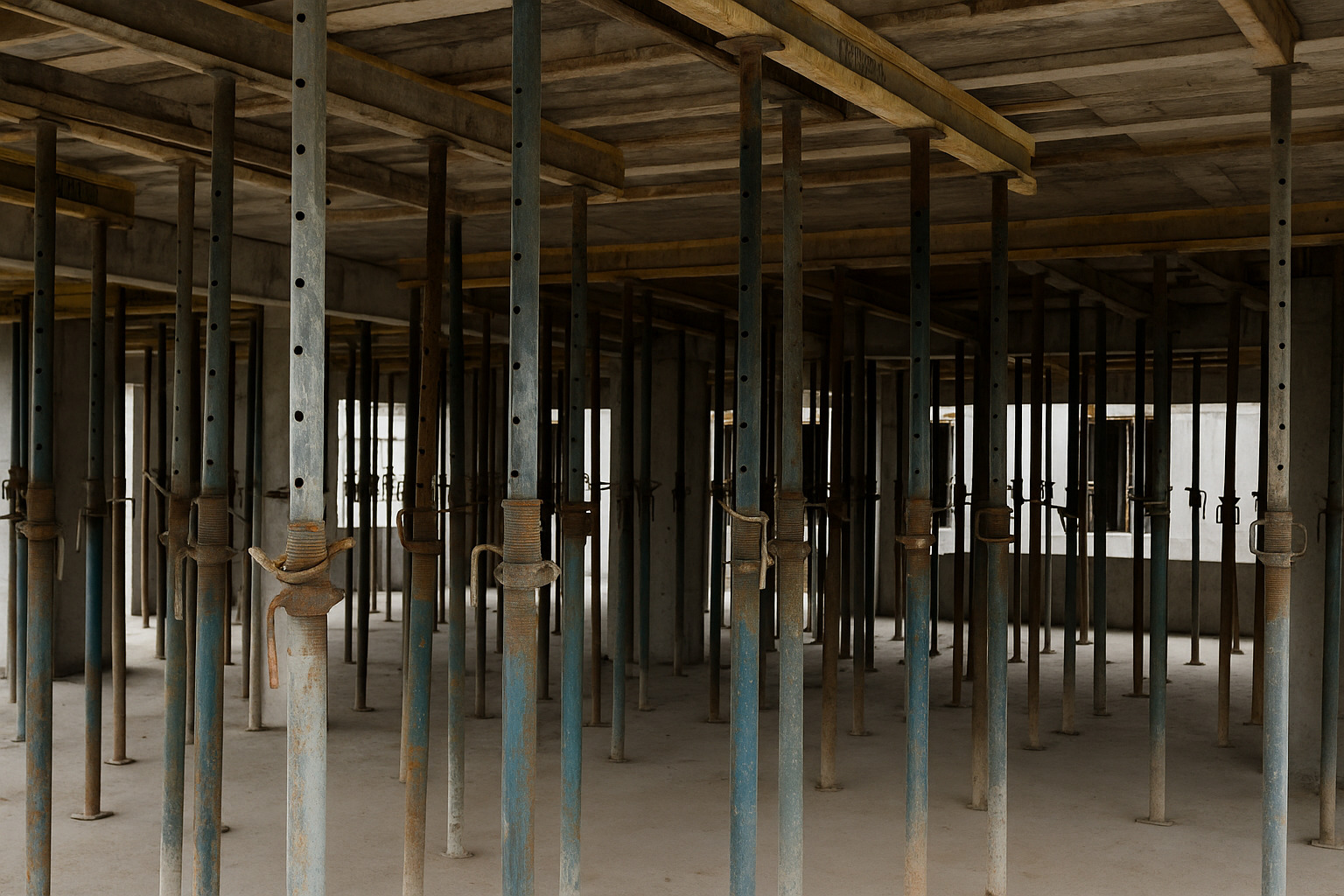
⚠️Safety Tips When Using Ceiling Jacks
Avoid placing jacks on uneven ground.
Never use rusty or deformed jacks.
The distance between jacks must be set according to the ceiling load (usually every 100–120 cm).
Do not install jacks without using the lock pin.
Never stack two jacks on top of each other to increase height.
Maintenance of Ceiling Jacks for Long-Term Use
Cleaning after each project: Remove concrete residues, dust, and oil with a brush or water jet.
Lubricating the threaded screw: Apply industrial oil to the threads before storage to prevent rust.
Storage in a dry, shaded area: Jacks should be stored vertically or hanging, away from moisture.
Visual inspection before use: Any cracks, bends, or damage to tubes, pins, or threads must be taken seriously.
The Key Role of Ceiling Jacks in Large Construction Projects
In large-scale construction, ceiling jacks are crucial due to their direct impact on safety, quality, and project scheduling. Their main applications include:
Multi-story residential buildings
Bridge construction and prestressed concrete slabs
Multi-level concrete parking structures
Industrial concrete buildings
Heavy concrete halls and warehouses
With their high load-bearing capacity and precise adjustment, ceiling jacks ensure the formwork remains in the correct position, preventing cracks, settlement, or breakage in concrete.
Comparison of Ceiling Jacks with Other Ceiling Support Systems
| Support System | Advantages | Disadvantages |
|---|---|---|
| Metal Ceiling Jack | Durable, adjustable, cost-effective | Requires manual installation |
| Metal Scaffolding | Wide coverage, suitable for open spaces | Bulky, difficult to transport |
| Wooden Structures | Low initial cost | Low safety, prone to decay |
| Engineered Formwork Systems | Precise, reusable | Expensive, requires training |
Conclusion: For small to medium-sized construction projects, metal ceiling jacks are the best choice in terms of quality-to-cost ratio.
Guide to Choosing the Right Jack for Your Project
Type of Project
Industrial, commercial, and residential projects have different requirements. For large projects, thicker reinforced tubes are recommended.Ceiling Height
The required height directly determines jack length. 3.5-meter jacks suit most projects.Ceiling Load
Heavier loads require stronger jacks with reinforced threads.Environmental Conditions
In humid or coastal areas, galvanized jacks are highly recommended.
Direct Purchase from Mahyar Sepahan
For a reliable, high-quality, and cost-effective purchase, Mahyar Sepahan is the top choice for large national projects.
FAQs about Ceiling Jacks
Can ceiling jacks be used for heights above 4 meters?
No. For higher elevations, truss structures or scaffolding should be used.Which is better: painted or galvanized jacks?
Galvanized jacks are more resistant to moisture and rust but are more expensive.What is the weight of each ceiling jack?
Between 12–15 kg, depending on length and thickness.Is bulk purchase with project discounts available?
Yes. Mahyar Sepahan offers special discounts for contractors.
Sample Projects with Mahyar Sepahan Jacks
Nikan Commercial Complex, Tehran: Used 2800 jacks for second and third floor slabs.
Pedestrian Bridge, Shiraz: Prestressed concrete slab formwork with 3.5 m jacks.
Industrial Warehouse, Qom: Combination of ceiling jacks and scaffolding for roof formwork.
Final Conclusion
Ceiling jacks are simple yet vital tools in concreting projects. Correct selection, proper use, and professional maintenance will:
Ensure project safety
Extend equipment lifespan
Reduce long-term project costs
With Mahyar Sepahan, you are guaranteed quality, service, and price.
Why Choose Mahyar Sepahan?
Daily production of thousands of jacks with industrial standards
Use of thick ST37 steel tubes
Custom jacks for special projects
Fast nationwide delivery with insurance
Free consultation team for calculating jack requirements
Contact Us
Factory Address: Isfahan, Sepahan Shahr Industrial Town
📞 Mobile: +98 912 118 0029
🌐 Website: mahyarsepahan.com
Tehran Office:
15 Khordad St., between Pamenar & Naser Khosrow, Saraye Hafez, No. 206
☎️ +98 21 5561 4080
Isfahan Office:
Chaharbagh Bala St., Kosar Commercial Complex, Phase 1, 6th Floor, No. 802
☎️ +98 31 3620 4994 / 95 / 96
Factory Line:
Km 5, Isfahan–Tehran Road, after Morche Khort
☎️ +98 31 4564 3152
